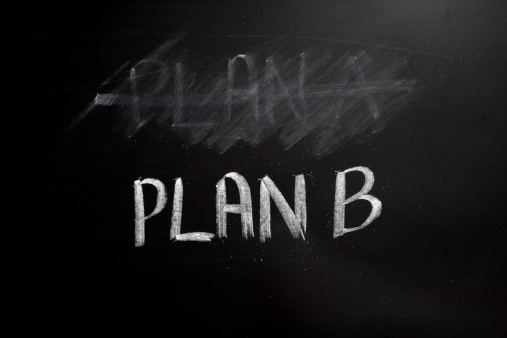How to Make Money With Plan B

What a dinner!
It wasn’t the food, the weather, or the waitress, but rather the student having a chance to learn from the master.
I had dinner with Mark Ford (aka, Michael Masterson) back in January in America’s “Most Fun Small Town”, Delray Beach, Florida.
With Matt Smith’s help I prepared the right questions, and was able to listen to the legend for hours. We went on well into the night, and it was worth it.
His advice, like the information you’ll get below, can help you succeed faster than ever. In fact, he’ll help you create a successful Plan B for any struggling business in less than 24 hours. – Craig
***
The 24 Hour Ready-Fire-Aim Business Proposal
By Mark Ford
“When someone comes to me for advice about a business idea that will require a considerable expenditure of time and money, I often ask for a Ready, Fire, Aim business proposal.
The purpose is not to slow down the start-up process but to outline goals, identify costs (obvious and overlooked), and analyze expectations to make sure they’re realistic. To keep the momentum going, I tell them that the proposal has to be finished and delivered to me within 24 hours.
The ideal R-F-A business proposal looks like this:
1. It is more than 1 page but no longer than 4.
2. It includes ballpark financial projections, including costs.
3. It identifies critical tasks.
4. It identifies a project champion and key support people.
5. It has a timeline for major tasks to be completed.
6. It describes Plan B.
How to Create Plan B
Business schools teach formal systems for creating backup plans. My favorite method is much simpler.
Imagine a conversation between two of your main competitors. They are talking about your business. They have heard some very bad news about your company (bad for you, not so bad for them). What is it?
Did you lose your big account? Did you blow your product launch? Did your three top executives (contractors, affiliates, partners, etc.) leave you? Did your bank close your line of credit?
Once you have a better idea of exactly what might go wrong, it’s relatively easy to create your Plan B. For each scenario, come up with a survival plan that makes sense. What you do, for example, if:
Your costs suddenly increased by 15%?
Your main customer(s) stopped buying from you?
Your most important employee quit?
Your building burned down?
Think about your business. Ask yourself the above question and spend an hour or so coming up with answers. If you have someone who can help you, take advantage. Jot down some preliminary thoughts. Mull over those thoughts for a few days, and then write-up your “What if it fails” plan. Put the written document somewhere safe, and keep a copy with a trusted colleague.
Do it. It may seem like extra work, but you’ll feel much better when it’s done.
– Mark Ford
***
Brilliant advice,
Craig Ballantyne
“The key to being successful with start-ups is have a good general idea of what you want to do but being flexible enough to change plans quickly as you discover the invisible secrets of the market you’ve jumped into.” – Mark Ford